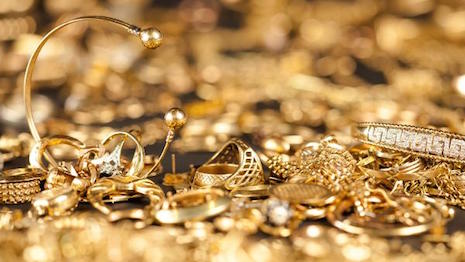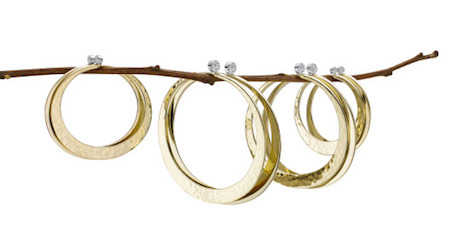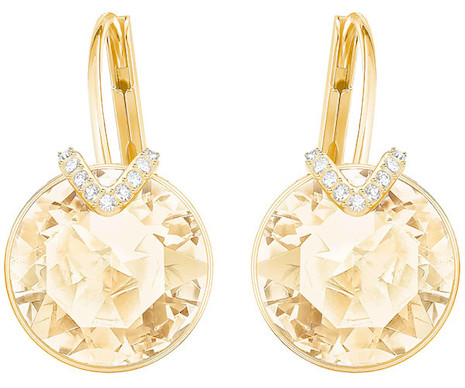 Gold is one of the most ethically fraught materials in the world. Image credit: Signet Jewelers
Gold is one of the most ethically fraught materials in the world. Image credit: Signet Jewelers
NEW YORK - Gold is one of the most important metals in the history of the human race, yet so much of how it is mined and sourced today is still rooted in cruelty and poverty.
At Initiatives in Art and Culture’s Gold Conference on April 13, a panel of experts from the jewelry industry spoke about the troubles with the mining of gold and the path towards making it more sustainable and ethical. Panelists explored the working conditions of miners and how jewelry companies can positively affect change.
"Someone once told me that tracking gold is like trying to track water, but you can track water and you can track gold too even if it's difficult," said David Bouffard, vice president of corporate affairs at Signet Jewelers. "We work with organizations around the world and now we know where 99 percent of our gold comes from down to the refinery.
"It took a large collaboration to get there," he said. "We are trying to help people within our supply chain.
"Gold miners in West Africa are a part of our industry just as much as we are and they need to be treated and respected the same as anyone else."
Ethical gold
In the developed world, it is easy to see gold as something that just appears.
This goes even for the companies that use gold to make jewelry and other luxury goods. Many times these brands might not even know where exactly the gold they use is coming from.
That is because gold is one of the most easily smuggled materials in the world. It is not particularly difficult to find, it comes out of the ground ready to be sold and many of the people who mine it are poor and desperate and so have no qualms about selling it to whoever will give them a good deal for it.
"The issues with gold is that gold is one of the most smuggled materials in the world," said Elizabeth Orlando, an economic officer in the Bureau of Economic Affairs at the U.S. State Department. "A lot of gold that comes from West Africa is used in the support of armed groups and could be mined by children under duress."
Mercury also plays a part in gold mining's problems. Image credit: Toby Pomeroy
It is the responsibility of jewelry companies to make sure that their materials are being sourced ethically and that they are having a minimal impact on the environment.
The effect of gold mining on local environments is particularly harmful given the use of mercury.
"When gold is mined, it often comes out very fine and sand-like," said Toby Pomeroy, founder of Toby Pomeroy Jewelers. "So many miners are forced to use mercury, which bonds with the gold and allows it to be held such that when the water is panned, the gold remains behind.
"It's very effective, it's used by almost all mines," he said. "They rub it on their hands, they process it, but it has a major impact on the environment and on workers' health."
How to progress
There are no easy answers to the question of how to build an ethical supply chain for gold.
No magic bullets exist that will instantly purify a jewelry company’s supply chain of ethical and environmental issues. Instead, those companies have to work hard to make that happen.
Integral to that change will be for brands to include representatives from the miners in the form of labor unions, from local governments in areas where gold is mined, suppliers and shipping companies and more.
Any person who is involved with the supply chain of gold mining needs to be brought onto the same page if progress is to be made.
Some luxury brands have already begun working towards this goal. For example, precision-cut crystal maker Swarovski is preserving its mission to social justice by focusing on the Fair trade movement and conscious jewelry for Baselworld, a major stage for the movement for its higher end line.
Swarovski recently committed to Fairtrade gold. Image credit: Swarovski
Throughout recent history, the jewelry and diamond industry has been exposed as a humanitarian nightmare, with horrific working conditions for laborers in third world countries. Swarovski, understanding the importance of combatting these issues, has taken a stance with a new collection for its Atelier Swarovski line, incorporating Fairtrade Gold and its own created diamonds into its creations (see story).
"We are not going to shop our way to a better world," said Christina Miller, co-founder of Ethical Metalsmiths. "When you find something in the supply chain you don’t like or it's unethical, make it your priority to change it.
"If you find a site where they are using mercury, support them to stop using it, help them get free of it."


